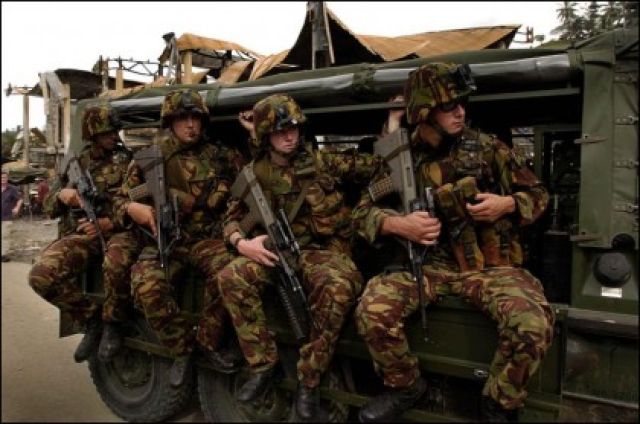
The Australian-led Regional Assistance Mission to Solomon Islands (RAMSI), involving involves police and soldiers, is set to continue its occupation of the Pacific island for at least “five to six years”, despite a change of government in the Solomon Islands.
Danny Philip was elected prime minister of the Solomon Islands by parliamentary vote on August 25, the Solomon Star said, after the August 4 general elections in which 25 out of 50 seats changed hands.
The day after his election, Philip was quick to reassure RAMSI his government would be friendly. According to the August 26 Solomon Times, Philip said: “I have no intention of kicking out RAMSI.
“We all know there needs to be changes so that RAMSI's mandate can be more purposeful and relevant in line of the challenges facing Solomon Islands. To all [participants in] RAMSI, I am telling you that I am a leader you can work with.”
RAMSI was created in 2003 after ethnic-based conflict that began in 1998 significantly disrupted the country. The RAMSI intervention was justified by claims that SI was becoming a “failed state” that could be exploited by terrorists and criminals.
RAMSI troops took over the policing of the country, and key posts within the government bureaucracy were taken over by RAMSI “advisers”, giving them virtual control of the country. Australians make up over 90% of RAMSI personnel, and the rest came from other Pacific nations.
Since then, RAMSI has influenced the political and economic life of the Solomon Islands, promoting the neocolonial agenda of the Australian government. Australian contractors and businesses are the main recipients of Australian government aid to the Solomon Islands, and their operations receive little scrutiny.
Philip's coalition is slightly more independent of Australia than the defeated government of Derek Sikua, which was closely aligned with RAMSI's agenda. Australian National University academic Jon Fraenkel told Radio Australia on August 31 that “there will be concern about the composition of the new government” from RAMSI and the Australian government.
However, the new government is unlikely to pose any kind of threat to RAMSI's continued occupation. The fragile coalition government has already been threatened by the opposition with a vote of no-confidence, the Solomon Star said on September 1.
RAMSI continues to be criticised for targeting political opponents of Australian interests. Several high-profile cases have collapsed due to findings of unlawful conduct committed by the Australian-led police force, AAP said on September 15.
Some cases have involved RAMSI officers trying to frame people by paying witnesses to lie in court. Cases have also been thrown out due to RAMSI officers failing to follow basic rules of law, such as reading people their rights and allowing access to lawyers.
These cases mainly targeted allies of former PM Manasseh Sogavare, who was ousted in 2007 over a dispute with the Australian government for its interference.
Former Solomon Islands public defender Stephen Lawrence, who defended many people pursued by RAMSI, told AAP the trials have been "shameful" and "a comprehensive failure".
He said RAMSI's activities were an "attempt to achieve a form of political cleansing" of those deemed to be at odds with Australia's interests.
"The rhetoric that Australia intervened to end the conflict is incorrect," he said. "The Australians came at least three years after the peak of violence when it became politically opportune in the broader context of a 'war on terror'."
RAMSI has been under fire after its security forces killed an unarmed man by its security forces on August 12, the Solomon Star said on August 13.
The premier of Guadalcanal, Stephen Panga, called for ending immunity for RAMSI soldiers, Impunitywatch.com said on September 5. The Tongan soldiers involved have since returned home without being questioned.
The shooting has damaged the popularity of RAMSI's security effort. A 2008 Aid/Watch report said up to 90% of Solomon Islanders approved of RAMSI's security role, in part due to the unpopularity of the Royal Solomon Island Police among sections of the population, and the fact that few people had actual contact with RAMSI troops.
However, the report said RAMSI had created resentment due to the effects of a "bubble economy" generated by the presence of highly paid foreigners, which had a negative impact on the local people.
